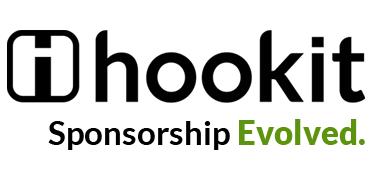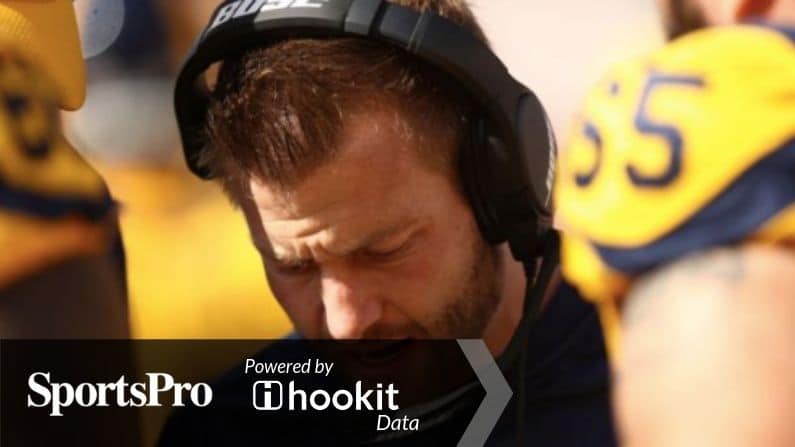As any marketer worth their salt will know, money lavished on sport is not always money well spent. Even for brands with the deepest pockets, securing return on investment is never guaranteed.
In a fast-changing and increasingly fragmented media landscape, the challenge of monitoring the performance of a given sponsorship or marketing campaign is certainly not getting any easier.
That is why Hookit, SportsPro’s official data partner, has created the Hookit Brand Score, an all-new measure for easily identifying which big-spending brands are seeing the most value for every marketing dollar they spend in sport.
The Hookit Brand Score: explained
To put together the Hookit Brand Score, Hookit looked at all of the posts promoting brands from entities within the Hookit Sport Graph, which tracks a global ecosystem of over 500,000 sports properties, including teams, leagues, federations, events, venues, media companies and athletes.
The initial study is a review of the 100 top-spending brands in North American sport, as monitored by IEG’s Top Sponsor Rankings. Tracked posts were made between 1st January and 1st November 2018.
In this case, Hookit defines promoted posts as any social post that has a mention (@brandname) or hashtag (#tagline) related to a brand in the text of the post. Logos within images or video posts were not evaluated for multiple reasons, the main one being that there is no way to be absolutely sure an entity is promoting a given brand. For example, if an athlete posts an image whilst wearing a branded jersey, that athlete may or may not be promoting that brand. However, if the athlete refers to that brand in the text, it is a clear indication of promotion.
Once all promoted posts were logged, Hookit’s data team identified several key factors for each brand:
- Number of promoters (how many sports properties promoted the brand)
- Number of posts about that brand (how often those promoters talked about the brand)
- Engagement on posts promoting that brand
- Average promotion quality of posts promoting that brand (how effective the promoters were at promoting the brand)
- Value of promotion (the value of the text promotion of the brand based on the engagement on the post and the promotion quality of that post)
In this study, engagement is defined as likes, comments, shares and video views on four of the leading social and content sharing platforms: Facebook, Instagram, Twitter, and YouTube. Once total engagement by platform was calculated, Hookit was able to attach a total value driven amount to the engagement based on published platform ad rates ($0.XX/like, $0.YY/share, etc).
In order to calculate the Hookit Brand Score, Hookit scored each brand on three distinct areas, and then combined those scores to calculate a final score out of 100:
- Promotion Quality Score (max 35 points possible): This score is determined by how well the promoters of that brand post about and promote the brand in posts. The scoring is a scaled value of their average promotion quality score across all platforms multiplied by the max score of 35. No brand achieved a perfect 35, but GE had a promotion quality score of 32.5, indicating that their promoters had an average promotion quality of 92.9 per cent.
- Promoter Efficiency Score (max 35 points possible): This score is determined by the value driven per promoter. Some brands can afford to sign lots of promoters, others only a few. This score seeks to mediate that gap in spending power by calculating which brands have the promoters that are driving the most value for the brand. Any brand with a value per promoter of over US$30,000 received a perfect score of 35 points in this category. Note: US$30,000 per promoter represents the 90th percentile for all brands in this study.
- Promoter Boost Score (max 30 points possible): This score is determined by how many engagements the posts about the brand received compared to the number of followers on the brand’s own accounts. Given that sponsorship is meant to amplify a brand’s message further than what they could achieve through their own channels, this score seeks to identify how well that message amplification happened. Any brand with more than 4.5 engagements on promoted posts for that brand per follower on brand-owned accounts (such as Pepsi’s 14.5) achieved a perfect score of 30 points in this category. Note: 4.5 engagements per follower represents the 90th percentile for all brands in this study.
For the Hookit Brand Score Results and rest of the article.
This article originally appeared on: http://www.sportspromedia.com/from-the-magazine/bose-pepsi-sport-sponsorship-brands-ranking


